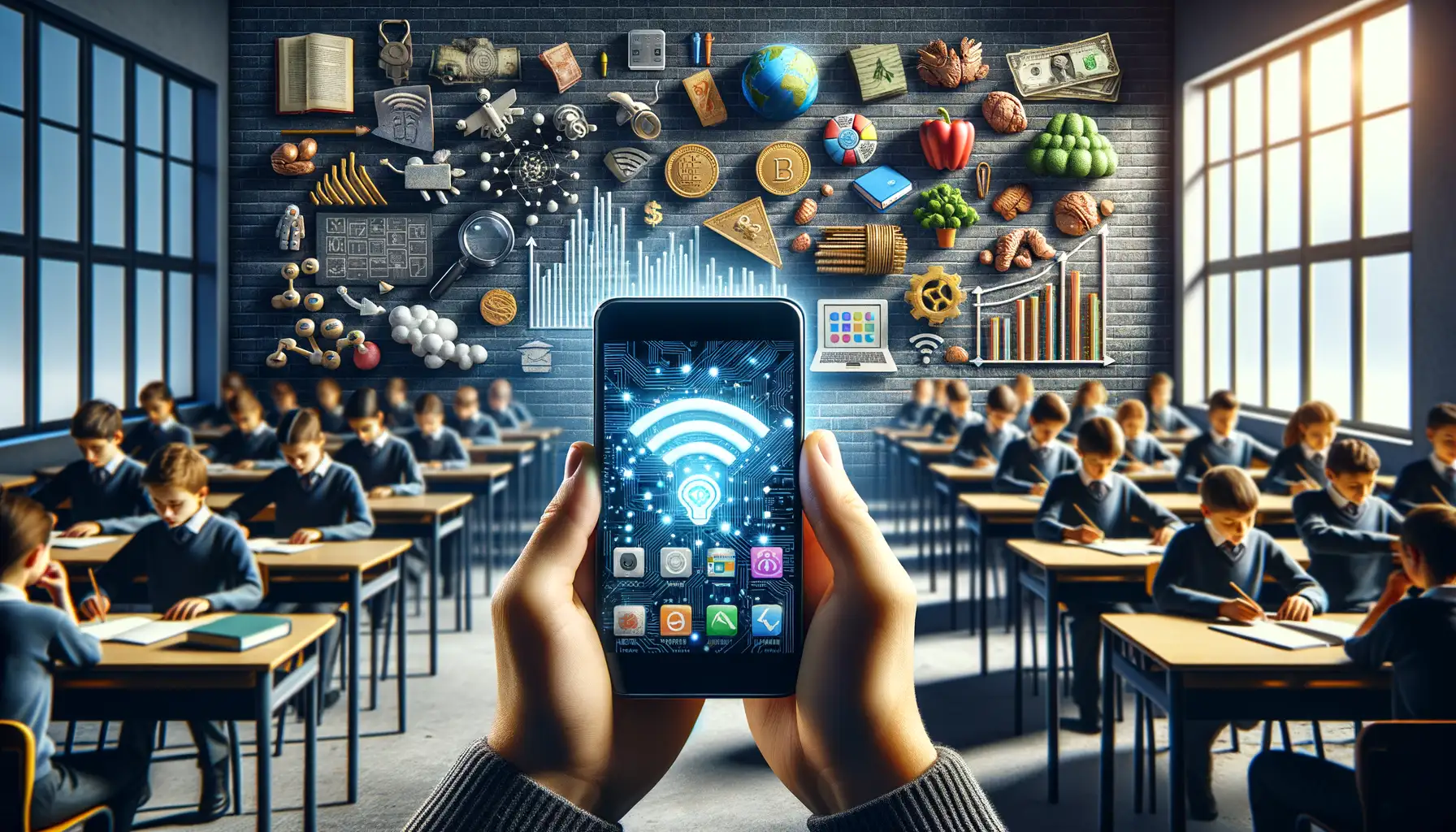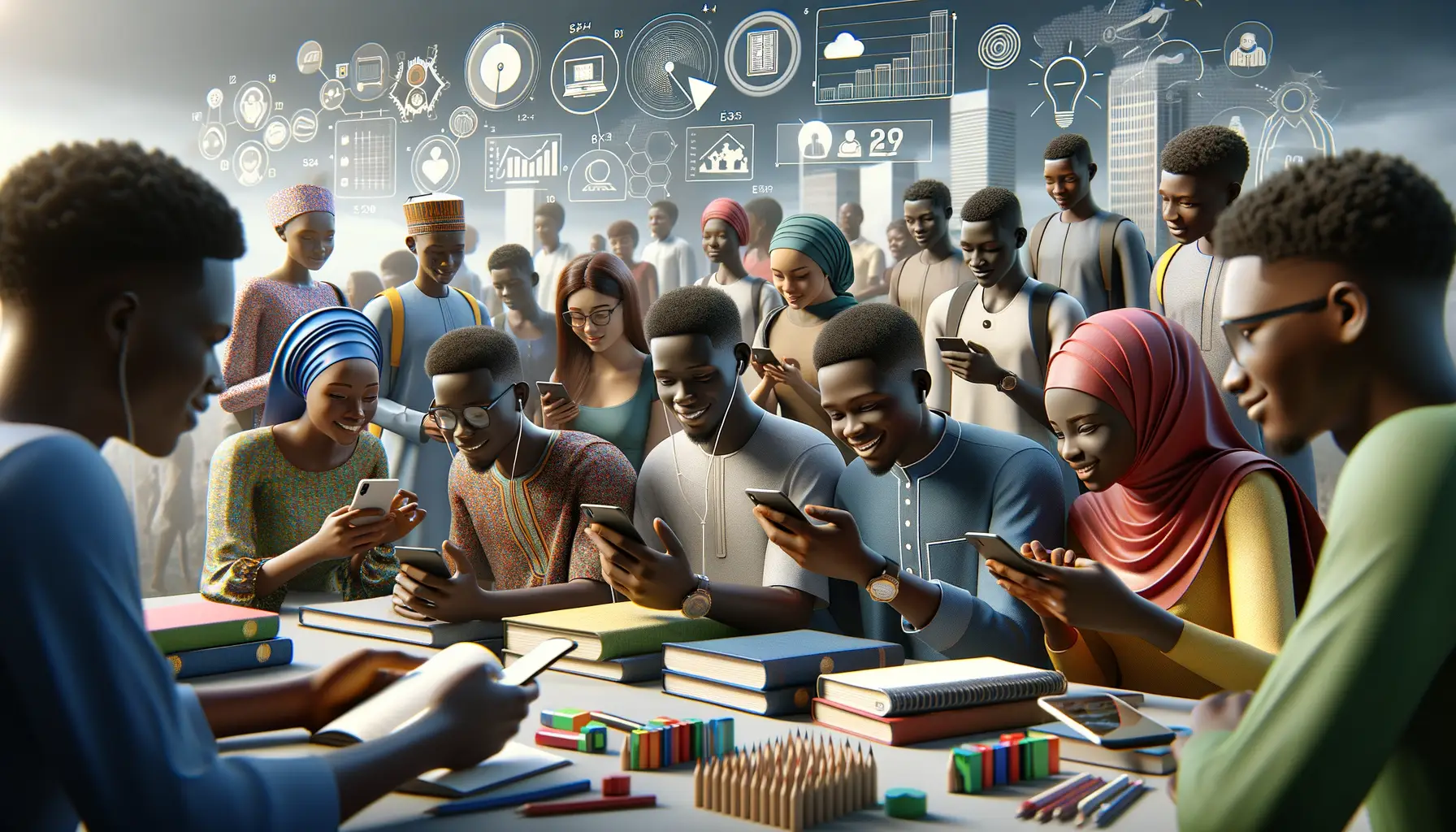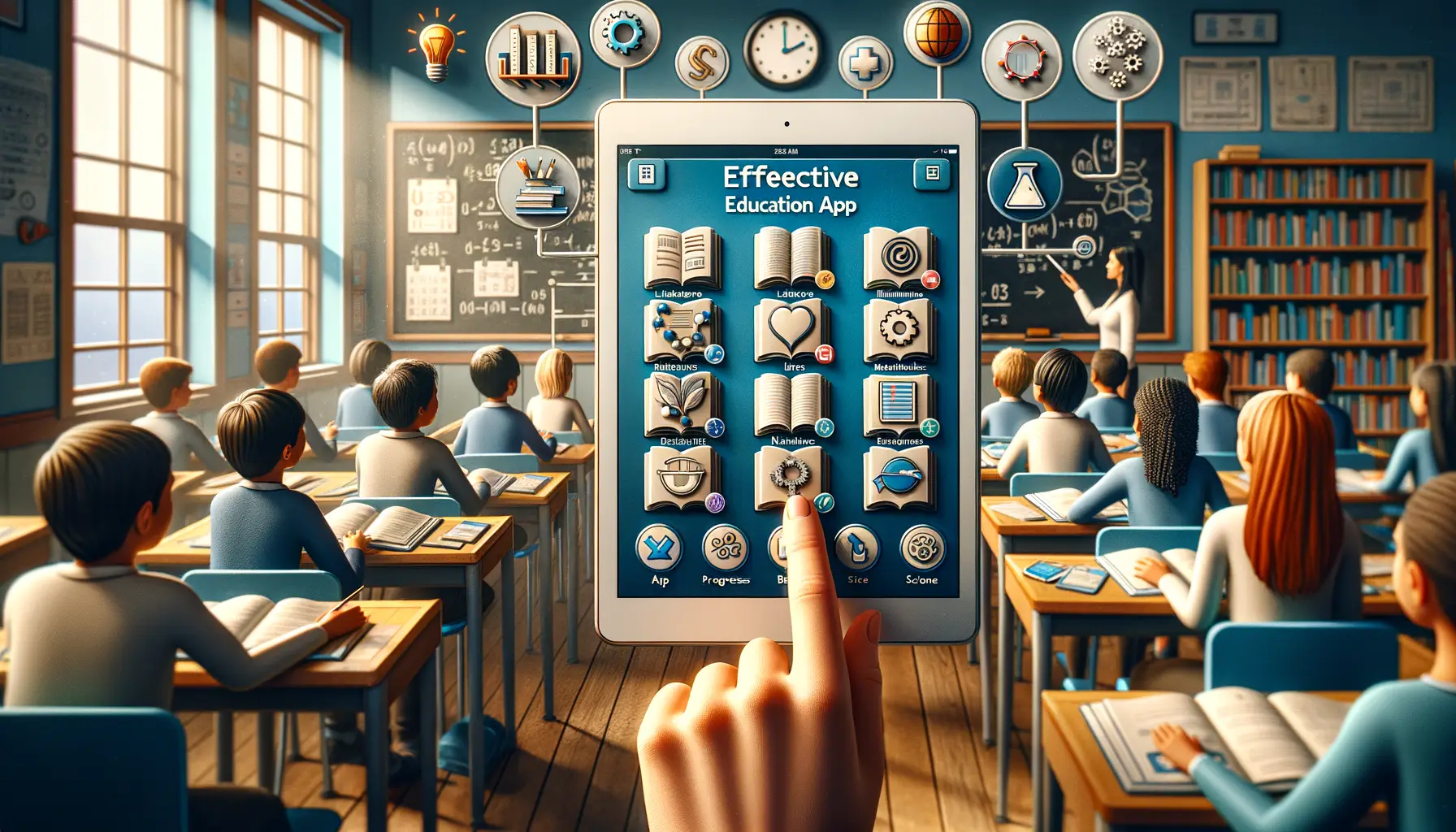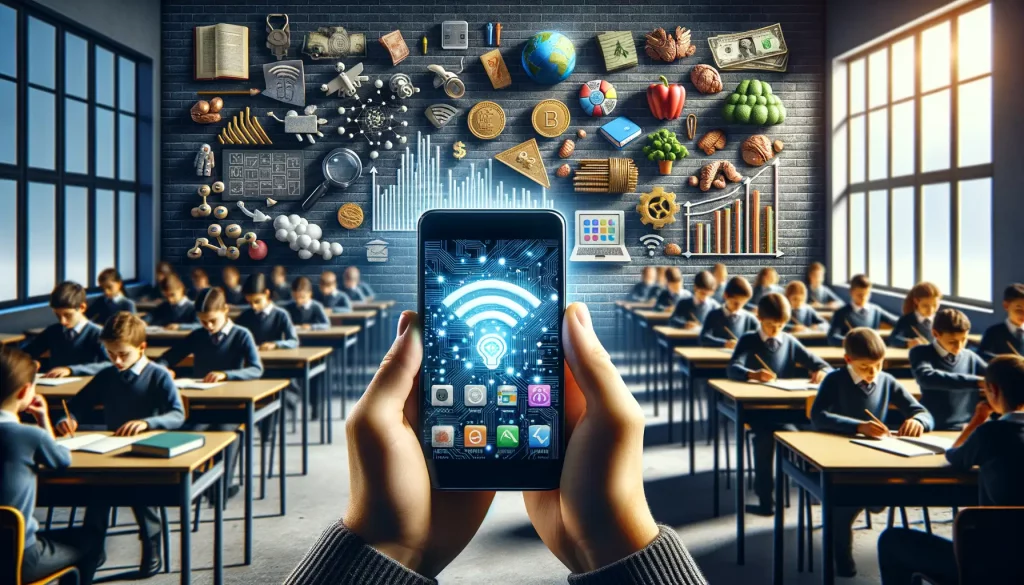The Importance of Mobile Education Apps in Nigeria
The Digital Classroom in Your Pocket
Imagine having access to an entire classroom right in your pocket—sounds magical, doesn’t it? For millions of students in Nigeria, mobile education apps are turning this dream into a reality. Gone are the days when learning was restricted to chalkboards and traditional classrooms. With just a smartphone and an internet connection, students from Lagos to Kano can now dive into knowledge anytime, anywhere.
Think about how remote areas in Nigeria often struggle with limited access to qualified teachers or up-to-date textbooks. Mobile education apps act as a bridge, connecting learners to a treasure trove of lessons, tutorials, and practice quizzes. Whether it’s preparing for WAEC or JAMB exams, these tools empower students to take control of their future.
- Khan Academy: Master Maths on the go.
- Edukoya: Ace Nigerian exams with personalized study plans.
- Duolingo: Learn a new language effortlessly.
Mobile apps are no longer luxuries—they’re lifelines for Nigerian students grappling with educational inequality. They inspire curiosity, boost self-confidence, and turn everyday moments into precious opportunities for growth.
Challenges Facing Mobile Education App Adoption

Connectivity Hurdles: The Invisible Wall
Picture this: a student in rural Nigeria, excited to dive into a new learning module on their app. They tap “start,” only to face the never-ending spinning wheel of buffering. Poor internet access and unreliable network coverage are like ghosts haunting mobile education in vast swathes of the country.
Even in urban areas, where connections are supposed to shine brighter, high-quality internet often comes at a cost few can afford. Without consistent access, even the most innovative app feels like a locked treasure chest with no key.
And let’s talk about electricity—yes, power outages still force many students to carefully ration battery life. A dead phone isn’t just an inconvenience; it’s the end of education for the day.
Affordability: A Price Too High for Some
Mobile education apps may promise the world, but for many families, the financial barrier is just too steep. Here’s why:
- Smartphone costs remain out of reach for low-income households struggling to make ends meet.
- Subscription fees for premium content can feel like an impossible ask, widening the gap between those who can afford to learn and those left behind.
- Data bundles to keep apps running? Another financial pinch that adds up fast!
These challenges aren’t just hurdles; they’re mountains that need scaling, particularly for the underserved. How do we ensure no student, no matter their background, is left stranded on this digital journey?
Benefits of Mobile Education Apps for Nigerian Students

Transforming Learning: The Mobile Advantage
Imagine a world where every Nigerian student, from bustling Lagos to the serene villages of Gombe, has access to quality education—right in their pockets. That’s what mobile education apps are doing today. These digital wonders are breaking barriers and rewriting the rules of learning.
Instead of being tied to chalkboards and textbooks, students can now dive into interactive lessons, join live quizzes, or watch engaging video tutorials—anytime, anywhere. A long bus ride? Waiting in line? These moments turn into opportunities to learn and grow. And the best part? Many apps include features like offline access, ensuring rural areas with limited internet don’t miss out.
These apps not only educate—they empower. Nigeria’s students aren’t just keeping up; they’re charting new futures with mobile tools leading the way forward.
Key Features of Effective Education Apps

Making Learning Engaging and Accessible
An effective education app feels like a trusted guide—warm, personal, and intuitive. It grabs your attention and keeps it hooked, making learning less of a chore and more of an adventure. A key feature here is user-friendly navigation. Imagine an app where everything just clicks—easy-to-read fonts, bright but not overwhelming colors, and clearly labeled sections. It’s like walking into a well-organized library that welcomes you with open arms.
And let’s talk about offline functionality. In regions of Nigeria where internet access plays hide-and-seek, an app that allows downloads for offline study is nothing short of life-changing. Visualize a student revisiting a science tutorial video while sitting under a mango tree in Ekiti or solving math problems without worrying about data costs.
- Gamification: Who doesn’t love a little competition? Quizzes and reward badges infuse fun and keep motivation high.
- Multilingual Options: From Yoruba to Hausa, learning is more inclusive when apps speak the language of the heart.
Personalization: The Ultimate Learning Hack
No two learners are the same, and the best apps know this! With features like AI-driven recommendations, students receive tailored content that meets them exactly where they are. Picture a struggling math student being guided step-by-step through algebra while another soars ahead into calculus—it’s like having a private tutor in your pocket.
Future Trends and Opportunities in Mobile Learning

Innovations Reshaping Mobile Learning
The world of mobile learning is sprinting forward at an electrifying pace, and Nigeria has front-row seats to this revolution. What’s on the horizon? Imagine apps that don’t just teach but interact like a favorite teacher who knows when you’re stuck and cheers you on when you nail a tough concept. With advancements in **AI and machine learning**, mobile education will feel deeply personalized—like having your own virtual tutor, understanding your unique rhythm of learning.
Then there’s the magic of **augmented reality (AR)** and **virtual reality (VR)**, turning abstract lessons into immersive experiences. Picture a biology student walking through a 3D model of the human heart on their phone or a geography enthusiast exploring Mount Kilimanjaro without stepping out of their Lagos living room.
What makes all this even more exciting is the rise of microlearning modules: bite-sized lessons designed for busy lives. Think quick 10-minute brain boosts during a commute or lunch break.
- AI-driven adaptive quizzes
- Interactive AR simulations
- Offline-first designs for seamless rural reach
Impossible? Hardly. The future of mobile learning is knocking, and Nigeria is poised to answer with open arms.
Opportunities Waiting to Be Seized
The opportunities here don’t just belong to students—they’re for developers, educators, and communities. For app developers, there’s immense demand for platforms tailored to **Nigerian cultures and languages**. Imagine a Yoruba-speaking educational bot helping primary schoolers learn math or a Hausa voice assistant guiding children through literacy exercises!
Moreover, bold partnerships between telecom providers and app creators could unlock enormous potential. Imagine discounted mobile data plans for educational app users—breaking barriers in one swoop. There’s also untapped potential in **peer-to-peer learning features**, enabling students to mentor, collaborate, and grow together.
For anyone with a dream in mobile learning, now is your moment. The possibilities aren’t just exciting; they’re transformational—and they’re waiting for someone ready to dare greatly.





